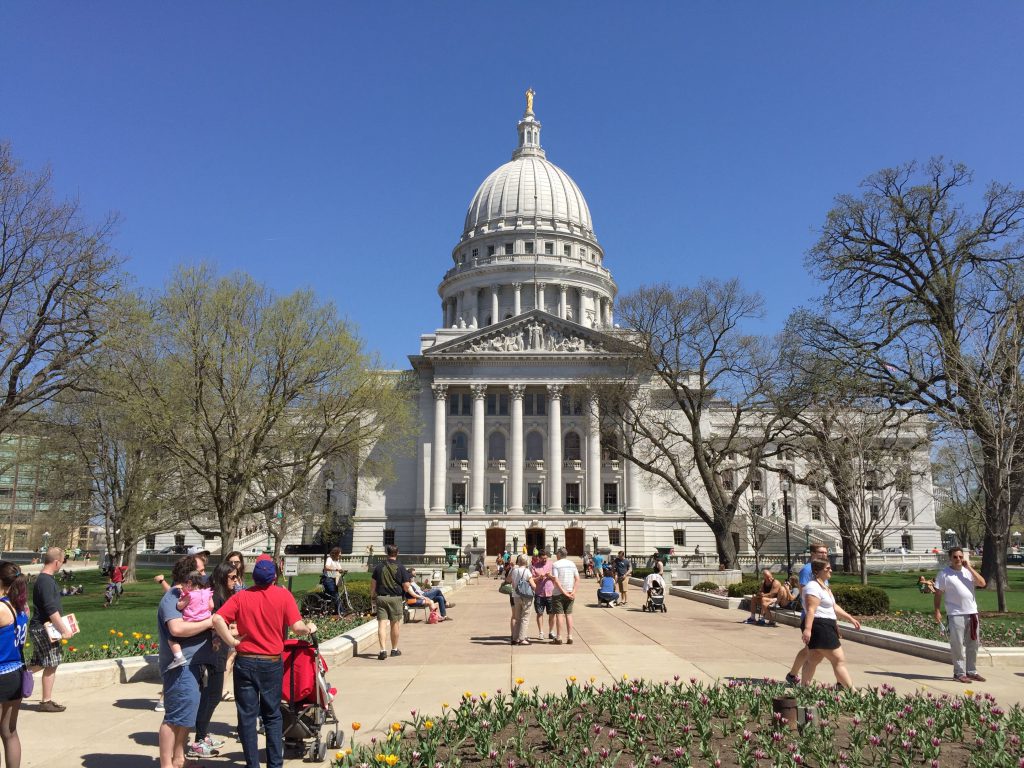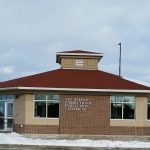UW, Prisons, MPS Now Capitol’s Top Issues
Evers and GOP legislators disagree. Issues could figure in fall elections.
Three major controversies – prisons and their oversight, whether to give the Universities of Wisconsin system $800 million more in state aid and how state officials will again try to reform Milwaukee Public Schools (MPS) – have quickly emerged as issues for both legislative campaigns and next year’s state budget debate.
Those three are now among the most expensive state government programs, making up 14% of all state general-fund spending this year.
How the Legislature responds to these controversies – and the deadlock between Democratic Gov. Tony Evers and Republicans over how to spend $125 million set aside last year to fight widespread water contamination due to PFA chemicals – depends on whether Republicans, who have controlled the Legislature for 13 years, still have that power after Nov. 5 elections.
Of those three programs, the state Department of Corrections (DOC), which runs prisons and probation and parole programs, costs the most – $1.36 billion in the budget year that ends June 30.
But felony criminal charges filed against nine Waupun prison employees, including the now-retired warden, inmate deaths and a pending federal investigation have Republicans threatening new oversight over how Evers appointees have run DOC.
Republicans have ignored calls by Evers for major criminal justice reforms. But Evers has refused Republicans’ pleas to tear down the problem-plagued Green Bay maximum security prison and replace it with a new Brown County prison.
Now, two Assembly Republican leaders, both of whom are up for re-election in November, say they are serious about more legislative oversight.
“There must be stronger accountability to ensure facilities are complying with the law and that the constitutional rights of those incarcerated are upheld,” said Reps. Mark Born, cochair of the Legislature’s Finance Committee, and Assembly Corrections Committee Michael Schraa. Their districts include several prisons.
Born and Schraa blamed the Evers Administration for “pervasive problems” and added, “Deaths – and the issues that have caused an ongoing federal investigation into Waupun – call for better accountability in our state prison system, similar to the statutorily required oversight that occurs in our county jails.”
DOC went months without a secretary until Evers promoted Deputy Secretary Jared Hoy to the top job on May 24. Evers has complained that the Republican Senate’s refusal to approve many of his cabinet secretaries — leaving them in danger of being fired should the Senate decide it dislikes some action taken — makes it harder to recruit people.
The UW system will get $1.22 billion in state tax funds this year. Evers promised that he will push for the system to get $800 million more by mid-2027 – a 65% funding increase – to stop campus closures, systemwide layoffs and the elimination of programs. State government provides 18% of all UW system spending.
As state superintendent of public instruction for 10 years, Evers served on the Board of Regents that governs the UW system. At a Regents meeting last week, he told the Board:
“UW has a long, historic tradition of solving complex problems, marshaling world-class research to inform better governance, and being a laboratory for innovation that has saved and changed lives here in Wisconsin and across the world.
“But … what we’re seeing is a decade-long war on one of our state’s most prized institutions. We’ve also seen how the UW System has increasingly been used as a political punching bag.”
When he submits his proposed 2025-27 budget to the Legislature early next year, Evers promised that it will include a $400 million annual increase for the UW System.
How that request is received will – just like the prison system controversy – depend on which party controls the Legislature.
Legislators and governors of both parties have been debating how to reform MPS for decades. The district had 68,700 students in the school year that just ended – about one in 12 of all public school students statewide – and got $636.4 million in state aid.
But, in the state Department of Public Instruction’s most recent report card, 48% of MPS schools either “failed to meet expectations” or “met few expectations” during the 2022-23 school year. Only 32% of MPS students met English language arts goals and 23% met math goals – far below the statewide averages of 60% and 57%, respectively.
The latest MPS controversy, which led to the resignation of Superintendent Keith Posley, resulted from the district’s failure to file financial reports required to get that $636.4 million in state aid. The Department of Public Instruction threatened to withhold aid payments until the reports were filed.
Responding, Evers promised to find “outside, independent auditors” to file two reports on “the instruction of our kids and support for [MPS} educators.”
Those audits could become public next year about the time the governor and legislators are haggling over the next state budget.
Steven Walters started covering the Capitol in 1988. Contact him at stevenscotwalters@gmail.com
If you think stories like this are important, become a member of Urban Milwaukee and help support real, independent journalism. Plus you get some cool added benefits.
More about the MPS Financial Crisis
- New MPS Superintendent Left Prior Job During Period It Faced Similar Criticism - Corrinne Hess - Feb 14th, 2025
- MPS Audit Finds ‘Culture of Fear and Reluctance to Change’ - Jeramey Jannene - Feb 13th, 2025
- K-12 Education: Meet the New MPS Superintendent - Terry Falk - Feb 11th, 2025
- MPS Still Owes Financial Data To State - Corrinne Hess - Oct 15th, 2024
- K-12 Education: MPS Consultant Will Guide Decisions - Terry Falk - Oct 9th, 2024
- K-12 Education: Aycha Sawa Faces New Challenges as MPS Financial Officer - Terry Falk - Sep 24th, 2024
- Milwaukee School Board Recall Fails - Graham Kilmer - Aug 19th, 2024
- Gov. Evers Announces MGT Consulting of America Selected to Conduct Independent Audit of MPS Operations - Gov. Tony Evers - Jul 29th, 2024
- MTEA Files Ethics Complaint Against Secretive “Recall Collaborative” After Recall Organizers Admit to “Anonymous Donors” - Milwaukee Teachers’ Education Association - Jul 26th, 2024
- Milwaukee Board of School Directors Statement Regarding an Interim Superintendent of Schools - Milwaukee Public Schools - Jul 25th, 2024
Read more about MPS Financial Crisis here
The State of Politics
-
A Wisconsin Political Trivia Quiz
 Dec 15th, 2025 by Steven Walters
Dec 15th, 2025 by Steven Walters
-
The Fight Over Wisconsin’s House Districts
 Dec 8th, 2025 by Steven Walters
Dec 8th, 2025 by Steven Walters
-
The Battle Over On-Line Betting
 Nov 24th, 2025 by Steven Walters
Nov 24th, 2025 by Steven Walters






















